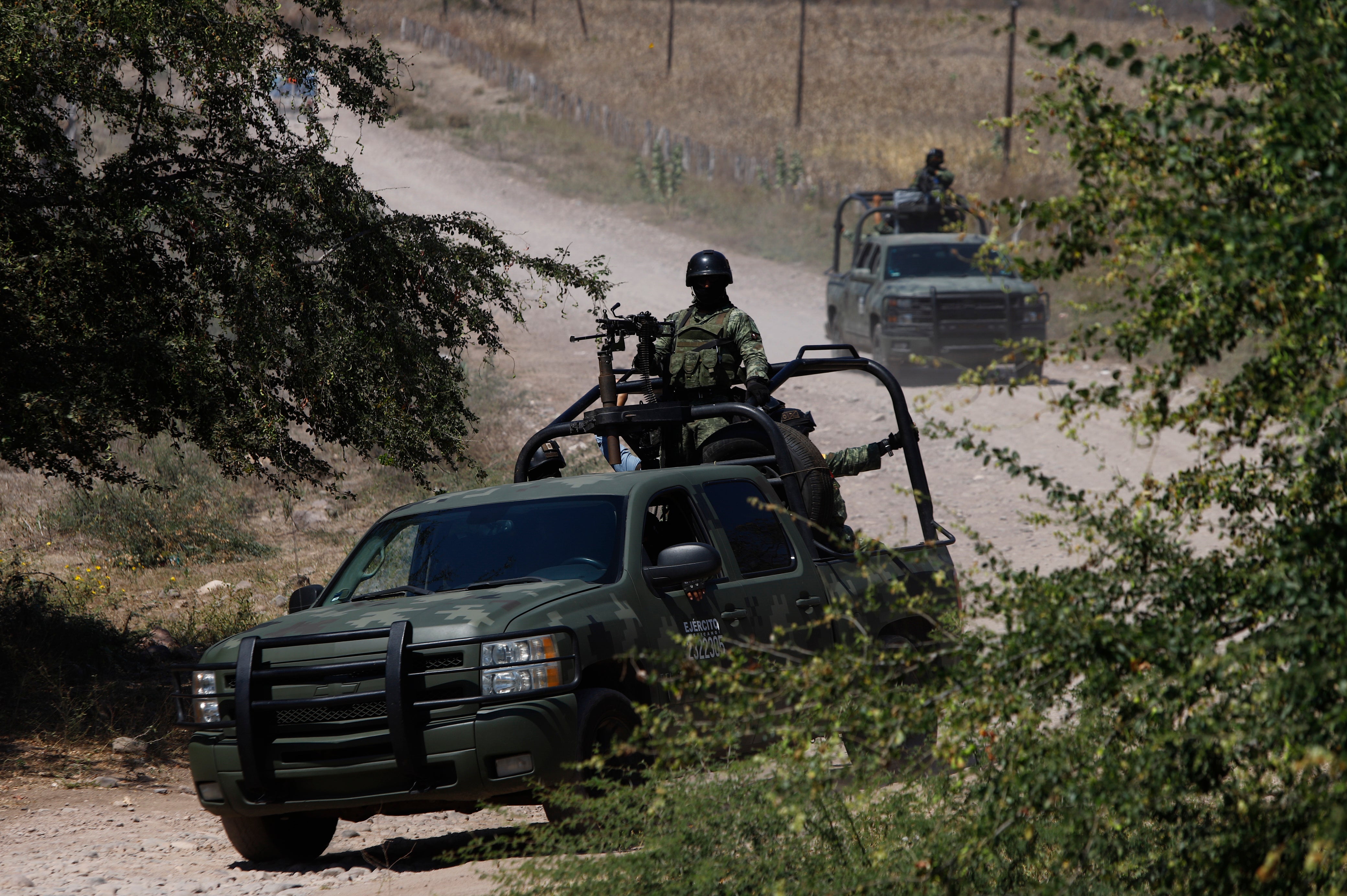Mexican army sends anti-mine squads to cartel turf war zone
Special squads of Mexican army troops equipped with metal detectors and bomb suits have been deployed to the western state of Michoacan, where warring drug cartels have planted land mines or improvised explosive devices

Your support helps us to tell the story
From reproductive rights to climate change to Big Tech, The Independent is on the ground when the story is developing. Whether it's investigating the financials of Elon Musk's pro-Trump PAC or producing our latest documentary, 'The A Word', which shines a light on the American women fighting for reproductive rights, we know how important it is to parse out the facts from the messaging.
At such a critical moment in US history, we need reporters on the ground. Your donation allows us to keep sending journalists to speak to both sides of the story.
The Independent is trusted by Americans across the entire political spectrum. And unlike many other quality news outlets, we choose not to lock Americans out of our reporting and analysis with paywalls. We believe quality journalism should be available to everyone, paid for by those who can afford it.
Your support makes all the difference.Special squads of Mexican army troops equipped with metal detectors and bomb suits have deployed to the western state of Michoacan, where warring drug cartels have planted land mines or improvised explosive devices.
The squads apparently have found dozens of such devices along rural roads and fields in the area around the township of Aguililla.
The mines claimed their first civilian victim last week, when a farmer drove over one in his pickup truck; his son was wounded in the blast. That explosion was apparently fueled by a device containing ammonium nitrate.
But the mines found so far have also included devices detonated by radio or telephone signal, by pressure — as when someone steps on them — or even by vials that break and combine two chemicals.
On Friday, a soldier demonstrated how he cautiously approaches suspicious spots of disturbed soil on a dirt road in the area, before getting a signal and calling in another soldier in a bomb suit.
Mexican army troops rolled into Aguililla, a township long dominated by the Jalisco cartel, for the first time in months on Feb. 8.
A few days before that, an army vehicle was disabled by an improvised explosive device, or IED, planted on a road, and 10 soldiers were injured by the mine or other weapons. That was the first known successful use of IEDs against a military target in Mexico.
The Jalisco cartel has been fighting the local Viagras gang, also known as United Cartels, for control of the area for years.
Michoacan state is coveted by drug cartels for its seaport and smuggling routes as well as the opportunity to extort money from the state’s growers of avocados and limes.
Some say the fighting has been so fierce around the hardscrabble hamlet of Naranjo de Chila because that is the hometown of Jalisco cartel leader Nemesio “El Mencho” Oseguera.
The cartels already have used trenches, pillboxes, homemade armored cars and drones modified to drop small bombs in their fight for control of Michoacan.
But the primitive, buried pipe-bomb style explosives can be the most indiscriminate of weapons.
The cartels’ bomb-carrying drones have actually caused more terror in Michoacan than the land mines. While initially crude and dangerous to load and operate — and still worrisomely indiscriminate — drone warfare has improved, and it’s not unusual to see metal barn or shed roofs opened like tin cans from the impact of drone explosions.